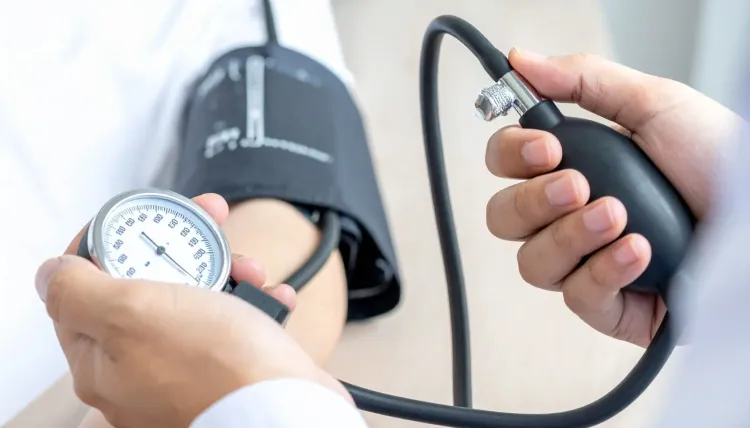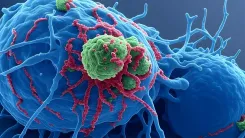Could a New Drug Revolutionize Treatment for Resistant Hypertension?

Synopsis
Key Takeaways
- Baxdrostat shows promise for lowering blood pressure in treatment-resistant cases.
- Patients experienced a significant reduction of 9-10 mmHg.
- 40% of participants achieved healthy blood pressure levels.
- The drug targets the hormone aldosterone to regulate blood pressure.
- Results suggest potential benefits for up to half a billion individuals globally.
New Delhi, Sep 1 (NationPress) A groundbreaking medication has demonstrated the potential to significantly reduce blood pressure in individuals whose levels remain perilously elevated, even after trying multiple existing treatments, as evidenced by findings from a Phase III clinical trial.
Globally, approximately 1.3 billion individuals suffer from high blood pressure (hypertension), with around half of these cases being uncontrolled or resistant to treatment. Such patients face a markedly increased risk of heart attacks, strokes, kidney disease, and premature mortality.
The international study revealed that after 12 weeks, participants on the new drug baxdrostat (1 mg or 2 mg taken daily in pill form) experienced a blood pressure drop of roughly 9-10 mmHg compared to those receiving a placebo—a decrease significant enough to potentially lessen cardiovascular risk.
About 40% of the patients achieved healthy blood pressure levels, in contrast to less than 20% on placebo, according to the trial led by University College London’s Institute of Cardiovascular Science.
The findings, published in the New England Journal of Medicine, were derived from nearly 800 patients across 214 clinics globally.
“Achieving a nearly 10 mmHg reduction in systolic blood pressure with baxdrostat in the Phase III trial is thrilling, as this level of reduction correlates with a significantly lower risk of heart attacks, strokes, heart failure, and kidney disease,” stated Principal Investigator Professor Bryan Williams from UCL, while presenting the results at the European Society of Cardiology (ESC) Congress 2025 in Madrid, Spain.
Blood pressure is heavily influenced by a hormone known as aldosterone, which aids the kidneys in maintaining salt and water equilibrium.
Some individuals produce excessive aldosterone, leading the body to retain salt and water. This aldosterone dysregulation elevates blood pressure and complicates management.
Baxdrostat operates by inhibiting aldosterone production, directly targeting this underlying cause of high blood pressure (hypertension). These findings are crucial as they shed light on the mechanisms behind the challenging-to-manage blood pressure.
Moreover, the study indicated that for patients with uncontrolled or resistant hypertension, adding baxdrostat (1mg or 2mg daily) to existing antihypertensive therapy resulted in clinically significant reductions in systolic blood pressure, effects that remained evident for up to 32 weeks without any unexpected safety concerns.
“This implies that aldosterone plays a significant role in contributing to difficult-to-control blood pressure in millions of patients and offers hope for more effective treatments in the future,” said Williams.
“These results suggest that this drug could potentially benefit up to half a billion people worldwide,” he added.







